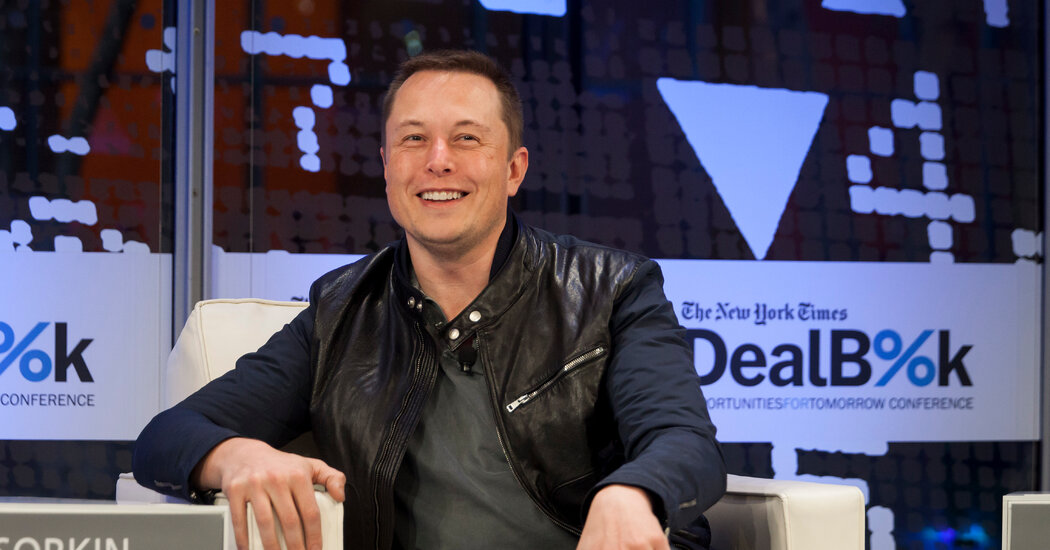Twitter’s board is considering a defensive move known as a poison pill that would severely limit Elon Musk’s ability to take over the social media giant, two people with knowledge of the situation said.
The board met Thursday to discuss Mr. Musk’s offer to buy the company, according to one of the people, who was not authorized to speak publicly. The directors are considering whether to go ahead with the poison pill — formally called a shareholder rights plan — that would limit the ability of a single shareholder, such as Mr. Musk, to acquire a critical mass of shares in the open market and force the company in a sale.
The poison pill defense is a common tactic used by companies looking to fend off unwelcome takeover offers. It essentially allows the company to flood the market with new shares or existing shareholders other than allowing the potential acquirer to buy shares at a discount. This dilutes the bidder’s interest and makes buying shares more expensive.
The Wall Street Journal previously reported that Twitter was weighing a poison pill.
If the Twitter board rejects Mr. Musk’s offer, he could make his offer directly to shareholders, rather than to the board, by making a so-called public offer. If Twitter’s other shareholders value Mr. Musk’s offer, which currently costs $54.20 a share, they could sell their shares directly to the billionaire, giving him control of the company.
“It would be completely indefensible not to let this offer go to shareholders’ vote,” Musk said in a Twitter message on Thursday. “They own the company, not the board of directors.”
But Twitter’s investors seemed unimpressed on Thursday with Mr. Musk’s offer, possibly over concerns about how he would fund it. While company shares tend to rise amid takeover speculation, Twitter’s fell nearly 2 percent on Thursday.
Saudi Arabia’s Prince Al Waleed bin Talal, who described himself as one of Twitter’s largest and most long-term shareholders, said Twitter should reject Mr Musk’s bid because the bid was not high enough to reflect “intrinsic value” from the company.
Twitter’s other top shareholders, according to FactSet, include the Vanguard Group, the company’s largest shareholder, with a 10.3 percent stake; Morgan Stanley Investment Management, with an 8 percent stake; and BlackRock Fund Advisors, with a 4.6 percent stake. Vanguard and Morgan Stanley Investment Management declined to comment on Mr. Musk’s offer. BlackRock did not immediately respond to requests for comment.
Mr. Musk turned down a seat on Twitter’s board this weekend, forcing executives who had recently welcomed him to their ranks to weigh in on a proposal in which Mr. Musk said he had no confidence in their management of the company.
The board is made up of Twitter insiders, including Jack Dorsey, a co-founder, and the chief executive, Parag Agrawal, in addition to independent directors.
Bret Taylor, the co-chief executive of enterprise technology company Salesforce, chairs the board. Mr. Musk sent Mr. Taylor a text on Wednesday evening, announcing his intention to buy Twitter, according to a regulatory filing. “After the past few days of reflection, I’ve decided that I want to take over the company and take it privately,” Musk wrote.
Salesforce considered buying Twitter in 2016, but the deal never materialized. Mr. Taylor, who has been on Twitter’s board since 2016, joined Salesforce a year later after acquiring his own company Quip.
Another key player on the board is Egon Durban, the co-chief of Silver Lake, a private investment firm. Durban joined Twitter’s board in 2020 as part of a deal the company struck with another activist investor seeking to shake up Twitter’s management.
At the time, Silver Lake invested in Twitter and helped keep management stable, preventing the immediate impeachment of Mr Dorsey. Because Silver Lake has helped Twitter out of a rough patch in the past, Durban may face questions about whether its business can double down and help fend off Mr. Musk.
Mr Dorsey could also influence the decision. He is friends with Mr. Musk and initially celebrated Mr. Musk’s investment in the company and his decision to join the board of directors. But Mr. Dorsey has often delegated important decisions to his team, preferring to rely on their expertise. and mr. Dorsey will also be leaving the Twitter board next month, which could give him another reason to back off.
His board allies include Mr. Agrawal, who was named his successor late last year, and Patrick Pichette, a general partner at the venture capital firm Inovia Capital and the former chief financial officer at Google.
Mr. Agrawal and Mr. Dorsey were closely aligned with their vision of making Twitter’s technology more decentralized, and Mr. Pichette was a close confidant of Mr. Dorsey’s in discussions of Twitter’s long-term plan. Mr. Pichette may also have experience negotiating with Mr. Musk – he was with Google in 2013 when it considered buying Tesla.
Mike Isaac reporting contributed.

